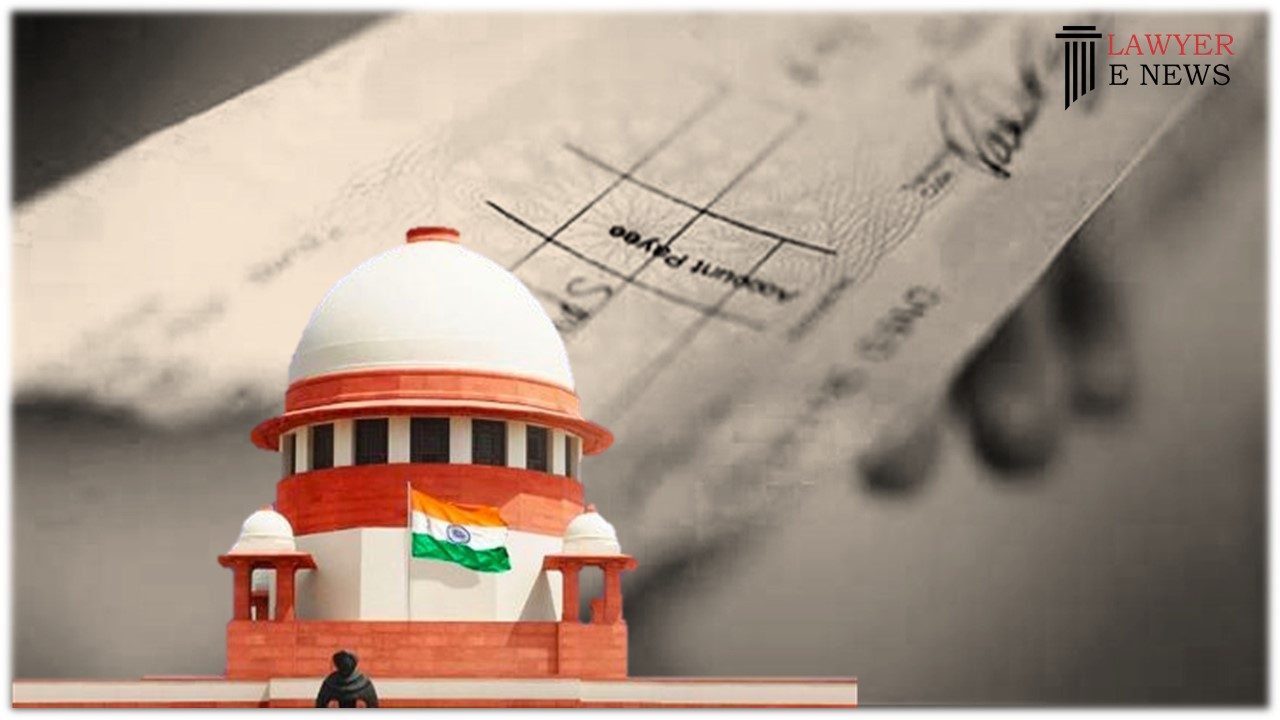-
by Admin
16 February 2026 1:47 PM



Presumption Under Sections 118 and 139 of NI Act Cannot Be Defeated by Mere Plea of Lost Cheque - On April 2, 2025, the Supreme Court restored the conviction of the accused under Section 138 of the Negotiable Instruments Act, 1881, rejecting the defence that the cheque in question was ‘lost’ and not issued towards a legally enforceable debt. The Court held that, “The onus is not on the complainant at the threshold to prove his financial capacity to make the payment. The presumption under Sections 118 and 139 of the NI Act shifts the burden upon the accused.”
The case originated from a complaint filed by the appellant who advanced a loan of ₹22,00,000 to the accused, who in turn issued a cheque which was dishonoured with the remark "payment stopped by drawer." Despite the Trial Court and the Appellate Court convicting the accused, the High Court reversed the decision citing lack of proof regarding the source of funds and other inconsistencies. The Supreme Court found this approach fundamentally flawed.
The Court categorically held, “The complainant is only required to show that the cheque was signed by the accused and was dishonoured. Thereafter, the presumption is drawn in favour of the complainant.” Citing Rohitbhai Jivanlal Patel vs. State of Gujarat and M/s S.S. Production vs. Tr. Pavithran Prasanth, the Court reaffirmed that unless the accused rebuts the presumption through cogent evidence, the complainant is not burdened with proving the source of funds.
Dealing with the accused's plea of the cheque being lost, the Court recorded, “The cheque was presented within time and dishonoured with the endorsement ‘payment stopped by drawer’. The alleged intimation of loss was sent to the police only in 2011, long after the cheque was dishonoured, raising serious doubts on the accused's defence.”
The Court pointed out that the accused, during cross-examination, admitted that no FIR was registered regarding the loss of the cheque, further eroding the credibility of his story. “The fact that the accused never replied to the legal notice also allows an inference that he lacked a credible defence,” the Court added.
Refusing to uphold the High Court’s approach, the Supreme Court remarked, “The High Court erroneously presumed that the complainant must prove source and withdrawal of funds, which is contrary to settled law.” The Court stressed that “only when the accused successfully brings a probable defence does the burden shift back to the complainant to demonstrate source of funds.”
The Bench further clarified that the absence of the partnership firm as a party did not vitiate the proceedings as the accused was the signatory of the cheque and did not dispute his signature. “When the accused, a partner, is the signatory and in charge of the firm, the complaint is maintainable,” ruled the Court, relying on Sunita Palita vs. Panchami Stone Quarry.
Finally, while reviving the conviction, the Court showed leniency by modifying the sentence to a monetary penalty. It held, “Considering the age of the accused and absence of criminal antecedents, the sentence is modified to payment of ₹32,00,000 within four months, failing which the original sentence including imprisonment will stand restored.”
Date of Decision: April 2, 2025
